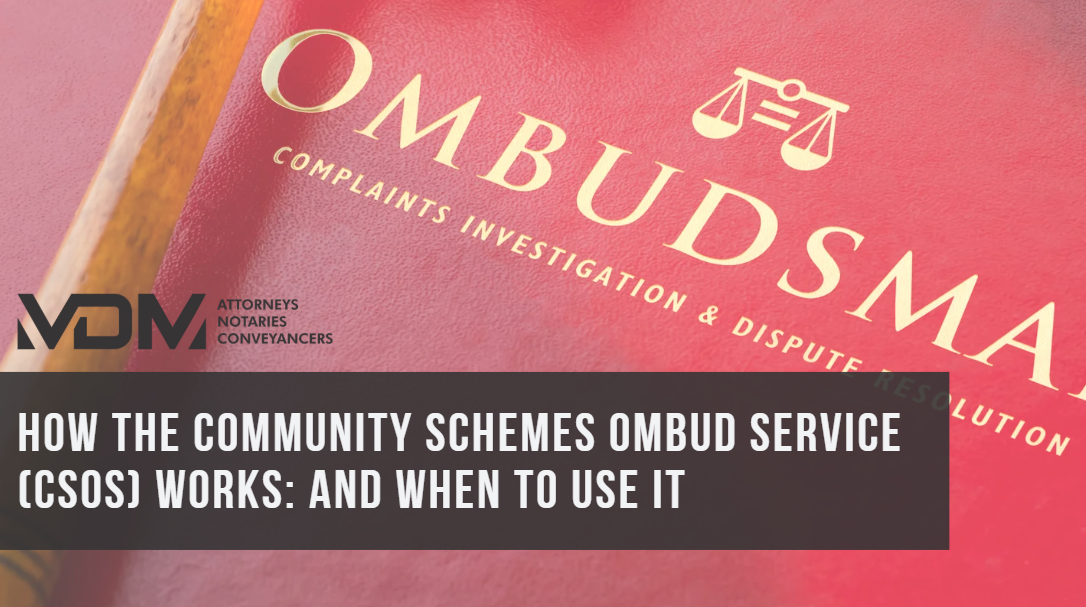
Living in a community scheme - whether a sectional title complex, homeowners’ association (HOA), retirement village, or share block - means you are part of a community governed by rules. Most of the time, these rules help maintain harmony, safety, and property value. But sometimes, disputes arise: over levies, pets, noise, trustees’ decisions, or the interpretation of scheme rules.
That’s where the Community Schemes Ombud Service (CSOS) comes in.
What is CSOS?
The Community Schemes Ombud Service is a statutory body established under the Community Schemes Ombud Service Act (2011). Its purpose is to provide a cost-effective, impartial dispute resolution service for people living in or managing community schemes.
In simple terms: CSOS exists to give owners, tenants, trustees, and managing agents a place to resolve disputes without expensive litigation.
How Does CSOS Work?
The process is designed to be accessible to the public:
-
Application – Any party in a community scheme can lodge a complaint with CSOS. This is done by completing the prescribed forms and paying a small fee (often far less than court costs).
-
Conciliation – CSOS first tries to resolve the matter through conciliation (similar to mediation). The idea is to help parties reach an agreement without escalating.
-
Adjudication – If conciliation fails, the matter is referred to an adjudicator, who considers the evidence and makes a binding order. These orders carry the same weight as a magistrates’ court judgment.
-
Enforcement – If one party doesn’t comply, the order can be enforced through the courts.
When Should You Use CSOS?
You should consider CSOS when there is a dispute relating to your community scheme that cannot be resolved internally. Common issues include:
-
Financial disputes: unreasonable levies, refusal to provide financial records, or misuse of scheme funds;
-
Governance disputes: invalid trustee elections, improper conduct by trustees, or challenges to AGM/SGM decisions;
-
Rules disputes: enforcement of conduct rules (e.g. pets, noise, parking);
-
Maintenance disputes: failure to maintain common property, or disputes over responsibility for repairs; or
-
Access to records: when an owner is denied access to scheme records they are legally entitled to see.
Benefits of Using CSOS
-
Affordable: Fees are minimal compared to going to court.
-
Accessible: Any owner, occupier, or scheme executive can apply.
-
Specialised: Adjudicators are familiar with community scheme law.
-
Binding decisions: Orders are enforceable like court judgments.
When Not to Use CSOS
CSOS is not a catch-all solution. It won’t handle disputes that fall outside the scope of community scheme law, such as private contracts, personal debts unrelated to levies, or criminal matters. In these cases, you would still need to seek legal advice or approach the courts.
In Summary
CSOS was created to bring fairness, balance, and accessibility to life in community schemes. If you’re an owner, trustee, or resident facing a dispute, it can be a powerful tool - provided you use it correctly and for the right type of issue.
At VDM Attorneys, we regularly assist clients in preparing, lodging, and managing CSOS applications, as well as advising on whether CSOS is the right forum for your matter. If you’re unsure, our attorneys can guide you through the process and help you resolve disputes effectively.